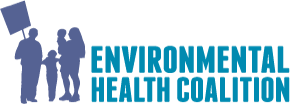As an act of decolonization, the Environmental Health Coalition (EHC) chooses to celebrate ‘First Nation’s Day of Resilience’ (FNDOR) instead of ‘Thanksgiving’. This Thursday, November 23, 2023, we invite you to join us in honoring our native ancestors, their descendants, and Indigenous peoples living today. We celebrate their strength, resilience, and perseverance against all odds!
What does it mean to decolonize?
It means learning and uncovering the negative effects of colonialism, which involve exploitation, domination, violence, and erasure of one group by another. It is also reflecting on how we uphold colonial structures, and what we can do to break these structures down. Decolonization is about working towards cultural, psychological, and economic freedom for indigenous people, and towards the return of indigenous land to the original people.
What does it mean to return indigenous lands?
It is called the Land Back movement. According to the Community-Based Global Learning Collaborative, the Land Back movement advocates for a transfer of decision-making power over territories that are guaranteed under treaties and have been illegally taken by federal, state, county, or individuals. It also calls for acknowledging that these lands were not empty before being colonized and for respecting sacred sites and biodiversity. Below are links to articles that can provide a deeper understanding.
Land Back: The Indigenous Fight to Reclaim Stolen Lands
Here are 3 places to watch the Land Back movement unfold in 2023
Decolonizing is NOT just a hashtag:
#DecolonizeBeauty #DecolonizeTherapy #DecolonizeYourDiet #DecolonizeYourSoul #DecolonizeFitness #DecolonizeParenting #DecolonizeLove
You may have seen this social media trend, however, let’s unpack what REAL action we can take to decolonize and be intentional about how we are connecting with indigenous communities. These social media hashtags can be a distraction when we should be focusing on the actual culprits: greedy institutions and corporations, billionaire web platforms dictating what is on our screens, and governments pretending to be progressive.
How can we practice decolonizing in our day to day?
1: Challenge colonial narratives:
In the US public schools system, from a young age, we are taught from the very narrow white colonial perspective- idolizing only historical figures like Christopher Columbus and Andrew Jackson. Upholding the narrative that people native to the land are somehow inferior. Oftentimes, the stories and lived experiences of Indigenous, Black, and People of Color are ignored and deemed as lesser than.
To practice decolonizing, we can push back, question, and challenge euro-centric history to be aware of a more accurate representation of Indigenous people’s history and their resilience in the face of oppression. The key to this is actively supporting the movement to integrate an Ethnic Studies curriculum that accurately reflects people’s history as a tangible way to engage in decolonial work. You can learn more at www.ethnicstudiesnow.com.
2: Support indigenous communities
Where we choose to spend our money says what is important to us! When we spend our money supporting corporations that exploit their workers or corporations that gentrify communities, we enable those colonial practices.
Instead, we can seek out and support Native and people of color-owned businesses, individuals, and organizations. By eating their food, attending their events, and donating, we can contribute to their economic well-being, amplify their efforts as well as learn more about a culture unfamiliar to our own! Below are some organizations and businesses you can support.
Rincon Reservation Road Brewery
Gathered: A Native Made Marketplace
3: Unlearn, relearn, and self-reflect
The traditional U.S. education system reinforces colonial principles by misrepresenting indigenous peoples, suppressing language, failing to acknowledge land’s original inhabitants, limited representation in leadership, and more.
We have the power to challenge and question the things we have been ingrained and educate ourselves on a more diverse, accurate, and critical analysis of colonial history, its impacts, and ongoing legacies to better understand the complexities of colonialism. Follow some native-run social media pages; listen to indigenous elders’ first-hand accounts, listen to podcasts and read books by indigenous people and people of color, etc. Check this reading list by the First Nations Development Institute: www.firstnations.org/knowledge-center/books.
4: Take Action – Hold people in positions of power accountable
We must identify who holds positions of power within our society- like government, media, corporations, educational institutions, etc. This also involves actively challenging their roles in promoting colonial legacies.
While it can sometimes feel daunting or bleak- as if our voice does not matter. When we band together with a goal in mind, we can change colonial systems of oppression. This can include violation of human rights, racism, sexual harassment, or violence. You can do so by joining social justice organizations like EHC that actively fight against social injustices! It helps to find a cause you are passionate about and start there instead of trying to tackle all the problems and spread yourself thin or burn out.
5: It’s not a ‘one-size-fits-all’ formula!
The idea of decolonizing can be complex but ultimately, it begins with the actions we take in our day-to-day lives, what we consume- (products/media), who we align ourselves with, and who we support. Even creating awareness in your immediate circles like our home, our workplace, and our friends can be an act of emancipation from colonial oppression.
